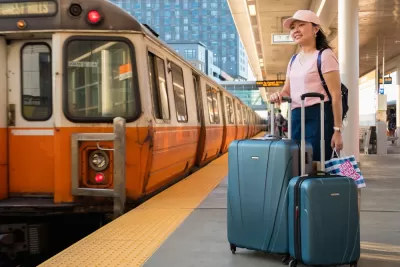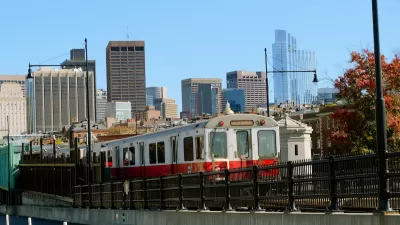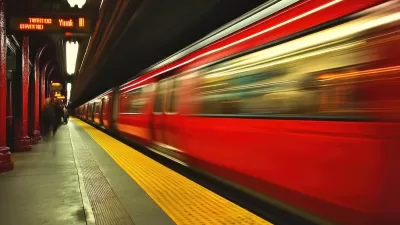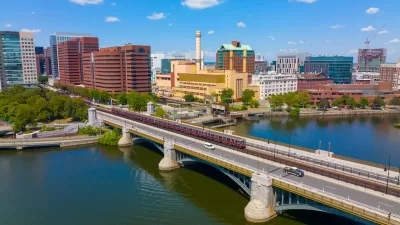A month-long shutdown of one of the region’s busiest lines prompted the city to experiment with temporary bus lanes, reoriented streets, and free bikeshare.

When Boston’s busy Orange Line shut down for a month this summer for long-awaited repairs, commuters braced themselves for massive disruptions. Governing’s Jared Brey spoke with Boston’s chief of streets, Jascha Franklin-Hodge, about the city’s strategies and what they learned.
To give subway riders alternative options, the city responded by “dedicating bus-only lanes, changing the direction of streets or closing them to cars, creating temporary bike lanes, designating queuing areas for shuttles, offering free 30-day passes to its Bluebike bike-share system and many other adjustments.” During the shutdown, Boston’s Bluebikes bikeshare system saw its highest ridership ever.
Franklin-Hodge admitted the line never should have gotten to the point where the shutdown was necessary. “I hope it leads to a real renewed commitment on the part of MBTA leadership to never allow the system to get to a point where we have to shut it down for 30 days.”
Franklin-Hodge also noted that the city should “try more stuff” on a short-term basis to test innovations and understand how they function in the real world. “I think it’s a reminder that we can move quickly, we can try things, we can learn from them, we can adjust them, we can use temporary materials in a lot of cases to refine a design rather than going straight to permanent, and if our goal is supporting transit, and it is, then we have to not lose that speed and that sense of urgency.”
FULL STORY: What Boston Learned About Transit Planning from a Subway Shutdown

Maui's Vacation Rental Debate Turns Ugly
Verbal attacks, misinformation campaigns and fistfights plague a high-stakes debate to convert thousands of vacation rentals into long-term housing.

Planetizen Federal Action Tracker
A weekly monitor of how Trump’s orders and actions are impacting planners and planning in America.

Chicago’s Ghost Rails
Just beneath the surface of the modern city lie the remnants of its expansive early 20th-century streetcar system.

Bend, Oregon Zoning Reforms Prioritize Small-Scale Housing
The city altered its zoning code to allow multi-family housing and eliminated parking mandates citywide.

Amtrak Cutting Jobs, Funding to High-Speed Rail
The agency plans to cut 10 percent of its workforce and has confirmed it will not fund new high-speed rail projects.

LA Denies Basic Services to Unhoused Residents
The city has repeatedly failed to respond to requests for trash pickup at encampment sites, and eliminated a program that provided mobile showers and toilets.
Urban Design for Planners 1: Software Tools
This six-course series explores essential urban design concepts using open source software and equips planners with the tools they need to participate fully in the urban design process.
Planning for Universal Design
Learn the tools for implementing Universal Design in planning regulations.
planning NEXT
Appalachian Highlands Housing Partners
Mpact (founded as Rail~Volution)
City of Camden Redevelopment Agency
City of Astoria
City of Portland
City of Laramie





























